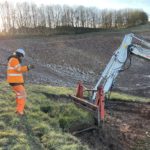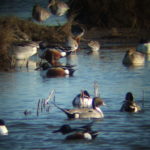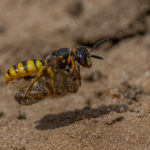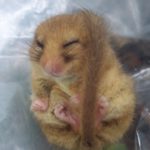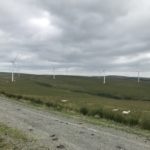Greenhill Farm in Pembrokeshire is a farm complex owned by RWE Npower, and no longer in active use as a farm. It comprised a mixture of traditional stone buildings with Welsh slate roofs, and more modern metal and asbestos buildings, all of which were in a very poor state of repair, leading to significant concerns about health and safety.
Bat surveys by Bioscan established that the complex of buildings supported numerous bat roosts, ranging from small scale roosts to maternity and hibernation roosts, and including roosts of rare bat species (barbastelle and lesser horseshoe), primarily associated with the traditional stone buildings. The making safe of the barns was designed in liaison with Bioscan to allow the retention of the vast majority of the bat roosts, focusing primarily on the removal of the modern metal and asbestos buildings.
The bat roosts which were necessary to remove comprised two small common pipistrelle roosts, 1 small soprano pipistrelle roost, 2 brown long-eared bat roosts and 2 lesser horseshoe bat roosts, together with a large covered area where bats had been observed to fly regularly. These losses were compensated by the construction of a replacement covered area (and associated reinstatement of the pipistrelle roosts), provision of bat boxes, and construction of a dedicated bat house to replace like-for-like the lost lesser horseshoe roosts.
Monitoring demonstrated that bats continue to thrive within the complex, and that lesser horseshoe is roosting within the bat house designed with this species in mind.
